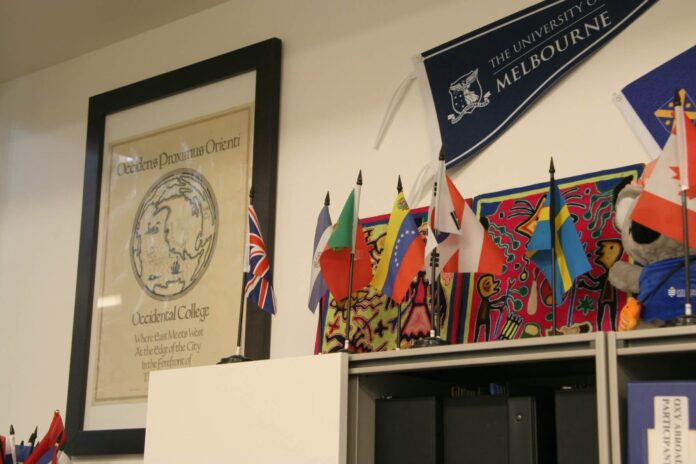
The Trump administration introduced a new $100,000 fee for employers sponsoring new H-1B visa applications on Sept. 19. The H-1B visa is a type of work visa for foreign workers in specialized occupations, including international faculty in higher education. Vice President of Academic Affairs and Dean of the College Kathryn Leonard said the new fee for employers, if it remains in place, could mean that Occidental will no longer be able to sponsor visas for new faculty coming in from abroad.
“[The proclamation] doesn’t appear to put existing visa holders at any additional risk,” Leonard said via email. “The landscape changes quickly, though, so we are keeping a close eye on new developments to make sure that we can effectively support our community.”
According to Associate Vice President and Chief Human Resources Officer Mel Gamba, the Trump administration’s new policy will have wide-reaching implications, not only for the educational sector, but for any workplace that relies on international talent. Gamba said the new fee on H-1B visas is one of the biggest challenges the HR department has dealt with in recent years.
“This is the first time an outside executive order has been so challenging,” Gamba said. “This exterior kind of decision by the new presidential administration is really a whole new set of circumstances that we’re navigating.”
According to Gamba, the shock of the new cost structure will make it necessary for the college to reevaluate how funding is allocated in order to accommodate the sudden new costs for hiring internationally.
“Whether we are able to fund certain H-1B visas or not really will come down to the budget,” Gamba said. “This is not something that was baked into the budget that’s already been approved. So it’s definitely something that we will need to think about strategically. How do we go about finding this talent, and what can we do to support it?”
Executive Director of International Programs Robin Craggs said that she was very concerned about the new policy, which she sees as particularly harmful to higher education. According to Craggs, the new cost structure could be seen as an attempt to target education on the part of the Trump administration, since universities are in a uniquely vulnerable position when it comes to hiring new faculty.
“$100,000 is a lot,” Craggs said. “I can see how a huge tech firm could maybe pay that for some super expert that they know is going to be amazing. But the whole nature of the tenure and promotion process is that you can’t invest $100,000 in a brand new assistant professor because you don’t know if they’re going to get tenure.”
Craggs said she feels that international perspectives in education are a central aspect of what makes Occidental and other liberal arts colleges what they are.
“At liberal arts colleges, what we’re about is making sure that the academic program is rich and diverse in ideas and values and lived experiences,” Craggs said. “And sometimes the best people for that job are international people who bring those perspectives to our campuses.”
Both Leonard and Gamba said the exact nature of the Trump administration’s new proclamation on H-1B visas remains fluid and can change quickly.
In the days since the first statement on the new visa fee was released, the Trump administration has released several memorandums to the original proclamation concerning who is affected by the new policy. The memorandums have clarified certain aspects of the proclamation, but the Trump administration has yet to answer other questions such as whether the fee applies to Canadian citizens, who are visa exempt but must still demonstrate that they meet all requirements for an H-1B in order to work in the U.S.
Gamba said questions also remain about whether the proclamation is legally tenable and that it might have to work its way through the judicial process before it can take full effect.
“Ultimately, what’s important is that we’re here to serve the students, and we want to make sure that we’ve got the professors and the talent in place to give the academic rigor that our students expect,” Gamba said. “My hope is that judicial review will take a long time. And that we can continue to do our sourcing in the meantime so that we can fill these positions with the best talent on the planet.”
Contact Adam Pildal at pildal@oxy.edu
This article was updated Oct. 21 at 11:53 a.m. to change the featured image.
![]()






























